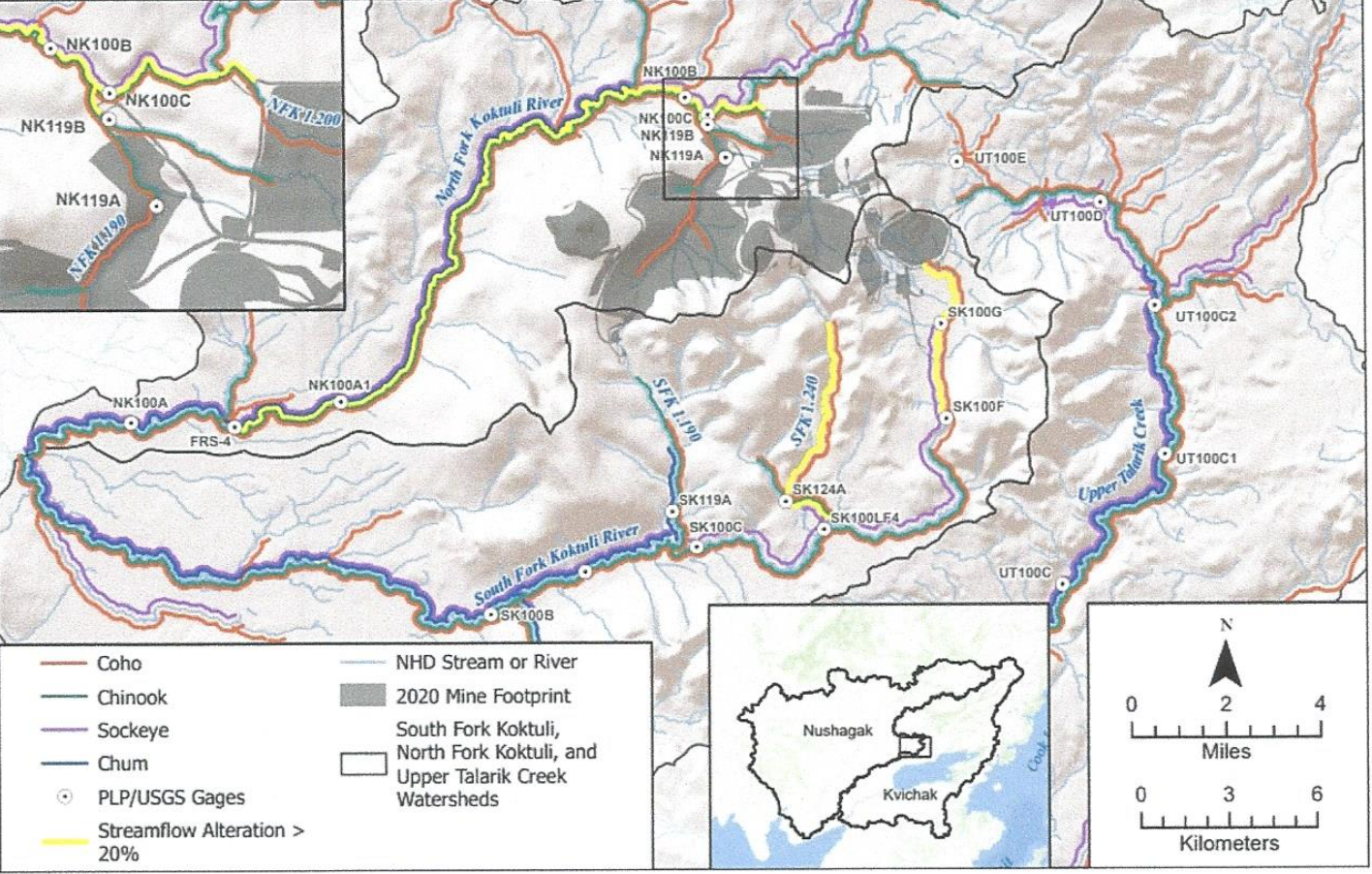One of the oldest Bristol Bay fishing associations came out strongly against the U.S. Environmental Protection Agency’s proposed new limits on the potential Pebble Mine, reflecting unease that the much-heralded move does not go far enough.
“The Bristol Bay Fishermen’s Association regrets that it cannot support the EPA’s weak and watered-down 2022 PD (proposed determination),” said David Harsila, a spokesman for association in a statement this week.
“The watershed will not be protected, and a large-scale mining operation could still be permitted. We demand that EPA do more to protect the Bristol Bay drainages.”
Under the Obama administration, the EPA in 2014 proposed a declaration under section 404 (c) of the Clean Water Act to protect headwaters of Bristol Bay salmon streams from pollution generated by mining for gold, copper and other metal ores in the Pebble Deposit.
During the Trump presidency, the Pebble Limited Partnership developers made headway toward winning clearance from the EPA and U.S. Army Corps of Engineers, only to be stymied by fishermen and conservation allies.
The Biden administration promised a return to Obama-era priorities, and in May the EPA opened a revised 404 (c) proposed determination. The United Tribes of Bristol Bay and other fishing advocates praised the action – but said they want more.
Detailed objections submitted by the Bristol Bay Fishermen’s Association and Ekwok Village Council contend the revised determination would allow adverse impacts along longer stretches of the salmon spawning streams.
“That seems to be a lot of mileage and we’re really concerned,” said Janis Harsila of the Bristol Bay Fishermen’s Association. “We’re looking for something that can stand up in court and give real protection.”
From the fishermen’s reading of the EPA proposal, it’s weaker that the 404 (c) proposal made by the agency in 2014 under the Obama administration, said Harsila.
Pebble Mine backers could propose new locations for mine tailings disposal and adapt to the proposed rule, said Harsila.
“It’s kind of a blueprint for a new plan,” she said. “We’re trying to get the word out there.”
According to the association the new proposed determination “only prohibits the Pebble Limited Partnership’s 2020 mine plan for which the Corps of Engineers has already denied a permit. PLP can revise its mine plan to comply with the weaker limits on four types of harm to anadromous streams and submit a new plan.”
The EPA proposal “does not apply to nearby potential mines at the Pebble South PEB, Groundhog, Big Chunk South and Big Chunk North deposits, which would or could build the same facilities as Pebble mine and cause the very same harms as Pebble mine,” the association says.
Other fisheries advocates have also said the 404 (c) new proposed determination won’t set a precedent for any other resource-extraction development in Alaska.
With more permissive limits, Pebble backers “can submit a revised plan during a future sympathetic federal administration, and will probably obtain a discharge permit necessary to build Pebble mine,” wrote Geoffrey Parker, an Anchorage attorney on behalf of the fishermen’s association and village council . “That is the ultimate consequence of the 2022 PD when it states that it provides such ‘clarity to the regulated community.’"
While the association and council supports rejection of the 2020 mine plan, “we cannot support the pre-application portion of the 2022 PD. The pre-application portion is by far the most important portion of the 2022 PD because that portion applies to future mine plans for the Pebble deposit,” according to the objectors.
“However, it is so weak that it will allow this dispute to go on forever. It will result in a revised mine plan, which a future federal administration may permit. In that respect, the pre-application portion of 2022 PD is likely to result in a Pebble mine.”







